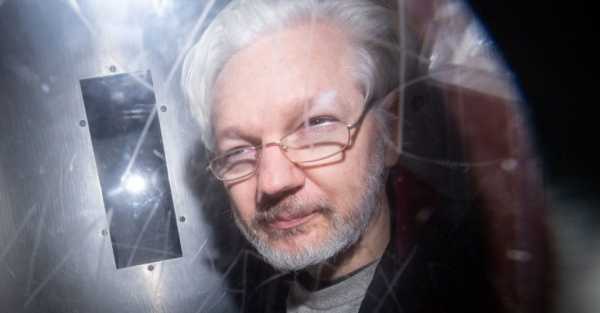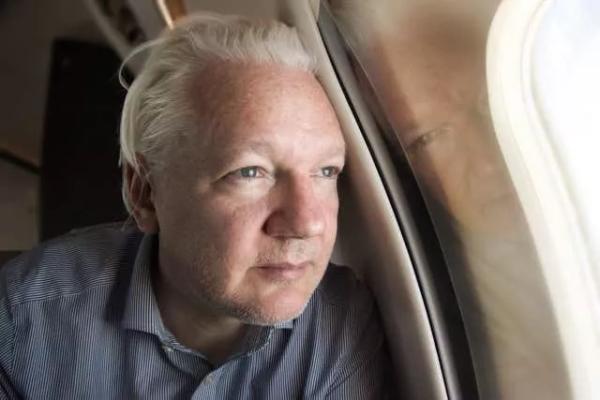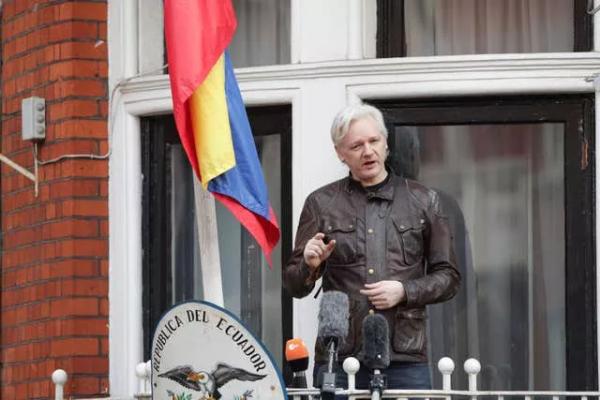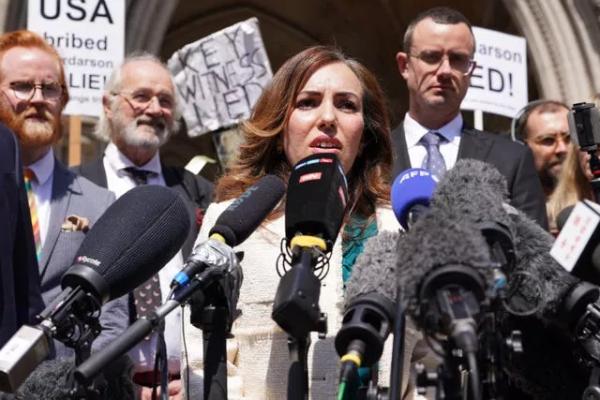
Julian Assange is a heroic figure for many campaigners against state spying and censorship but regarded as a malicious hacker and danger to national security by his critics.
The enigmatic WikiLeaks founder was born Julian Paul Hawkins in Queensland, Australia, to artist Christine Hawkins and John Shipton, an anti-war activist, on July 3rd, 1971.
The couple separated before their son was born and when Julian was an infant his mother married Brett Assange, an actor with whom she ran a small theatre company – with Julian taking his surname.

During his childhood, Assange passed through 37 different schools while he was on the road with his mother’s travelling theatre company.
While still a teenager, Assange married his then-girlfriend and the couple had a son, Daniel. The pair were then involved in a custody battle over their child after separating.
By this point, Assange had become heavily involved in the hacking community in Australia.
Alongside run-ins with the law over his involvement with hacking into the master terminal of the Canadian telecommunications giant, Nortel, Assange assisted the Australian police with technical support to help prosecute child pornographers.
In December 1996, he struck a plea deal over hacking charges in Australia – pleading guilty to 24 counts and avoiding prison at the age of 25.
But it was the founding of the news leaks organisation, WikiLeaks, in 2006 which made him a household name.

As the self-styled editor-in-chief of the site, he oversaw the publication of more than 10 million documents and attracted high-profile supporters including Pamela Anderson, novelist Tariq Ali and filmmaker Ken Loach.
He has been quoted as saying: “It is the role of good journalism to take on powerful abusers.”
WikiLeaks rose to prominence in 2010 with a series of high-profile leaks, starting with the Afghan War documents in July, and culminating in the Iraq War logs and the release of a series of top secret diplomatic cables.
The leaks detailed thousands of civilian deaths as a result of the Afghanistan and Iraq conflicts and implicated American armed forces in the killing of innocent bystanders, including a father and two Reuters journalists during an air strike on Baghdad in July 2007.
In November 2010, Sweden issued a European arrest warrant for Assange for allegations of sexual assault – prosecutors eventually discontinued their investigation in 2019.
After losing his appeal against the warrant, he breached bail and took refuge in Ecuador’s embassy in London in June 2012.

He was officially granted asylum by the South American country in August 2012 on grounds of political persecution and fears he might be extradited to the United States.
In 2015, Assange began a relationship with Stella Moris, his South African-born lawyer.
On April 11th, 2019, his asylum was withdrawn with the Ecuadorian authorities blaming his “repeated violations” of “international conventions and daily-life protocols”. The police were invited into the embassy and he was arrested.
He was then incarcerated in high-security Belmarsh Prison in south-east London, as the US government’s extradition effort was contested in UK courts.
Assange married Ms Moris at Belmarsh Prison in March 2022 in a private ceremony lasting around three hours, with six guests including the couple’s two young sons and Assange’s father, Mr Shipton.
In June 2024, he left the UK following his dramatic release from prison after five years of fighting extradition to the United States.
Sourse: breakingnews.ie